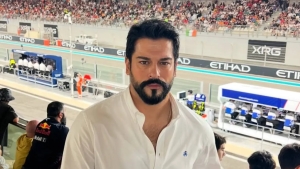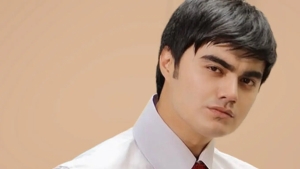Sulaymon would be a leader in art and strategy in 2025

If the great ruler Suleiman were to be transported to the year 2025 as he was in the 16th century, he might not have pursued political activity. This was reported by Upl.uz.
His broad thinking, accustomed to absolute power, and his skill in managing the empire would be too small and exhausting for the compromises and bureaucracy of modern politics. However, if he were born today and lived in a bustling metropolis, what kind of person would he be?
Suleiman was not only a ruler but also a creator in his time. He wrote poetry under the pen name Muhibbi, engaged in the art of jewelry making, and created clothing designs.
His love for beauty and attention to detail would have made him a well-known figure in the world of art. Perhaps he would be an artist working with unconventional materials or an art director creating stage designs for theater and cinema.
His aesthetic taste would manifest in creating clothing collections worn by celebrities walking the red carpet at international festivals, such as Cannes or Venice. Suleiman might have collaborated with fashion houses or established his own brand, with every detail reflecting his pursuit of harmony and greatness.
Suleiman was also famous as a great military leader, expanding the borders of the Ottoman Empire through his campaigns. If he were born in modern times and educated at a military academy, his strategic talent would find its place in contemporary conditions.
He could have worked in an analytical center developing cybersecurity strategies or managing defense projects instead of battlefields. His composure, ability to make decisions under pressure, and respect for the experience of colleagues would make him a suitable person for managing complex operations.
For example, he could have been a department head at a major tech company developing data protection systems or a consultant on national security issues. Suleiman would be a deep thinker, with his life shaped by strict discipline and moral principles.
In 2025, he would be active as a public intellectual, attracting millions of viewers with his appearances on the internet. Perhaps he would run a YouTube channel or a podcast discussing philosophy, ethics, and issues of modern society.
His words would be filled with wisdom and tranquility, attracting those seeking answers to complex questions. He might also write books or articles in major publications, sharing thoughts on preserving humanity in the age of technology and globalization.
Religion played an important role in Suleiman's life. In the 16th century, he was not only a ruler but also a defender of faith.
Today, he could be a spiritual leader uniting representatives of various cultures and religions. His approach would not be prone to fanaticism; rather, he would be a modern thinker promoting peace, tolerance, and inner harmony inspired by Sufi traditions.
Perhaps he would organize international forums or run a blog discussing how spirituality can help solve modern problems. Suleiman would not fit roles that require trivial tasks or compromises of conscience.
He would not engage in advertising products, operate in the media, or participate in political games. His straightforwardness and strict attitude towards betrayal would hinder him from working in areas that require moral flexibility.
Suleiman would not be a stockbroker, marketing specialist, or a powerful figure in the political backroom. His principles—open leadership and loyalty to his ideals—would remain unchanged.
If Suleiman were in Uzbekistan in 2025,







